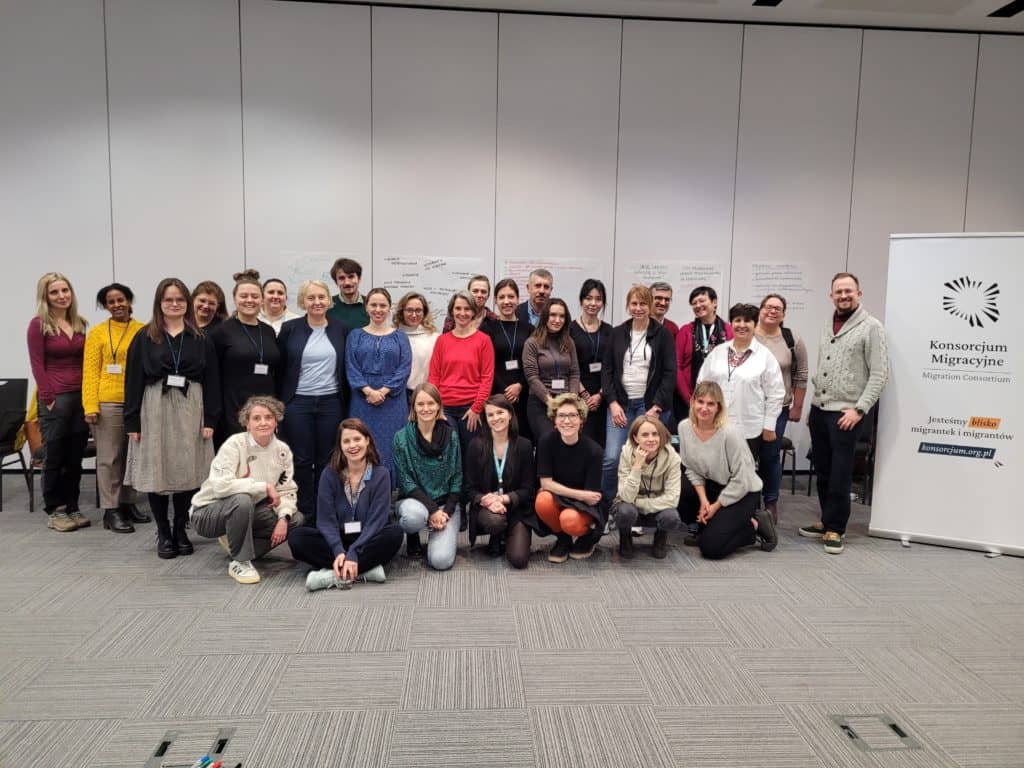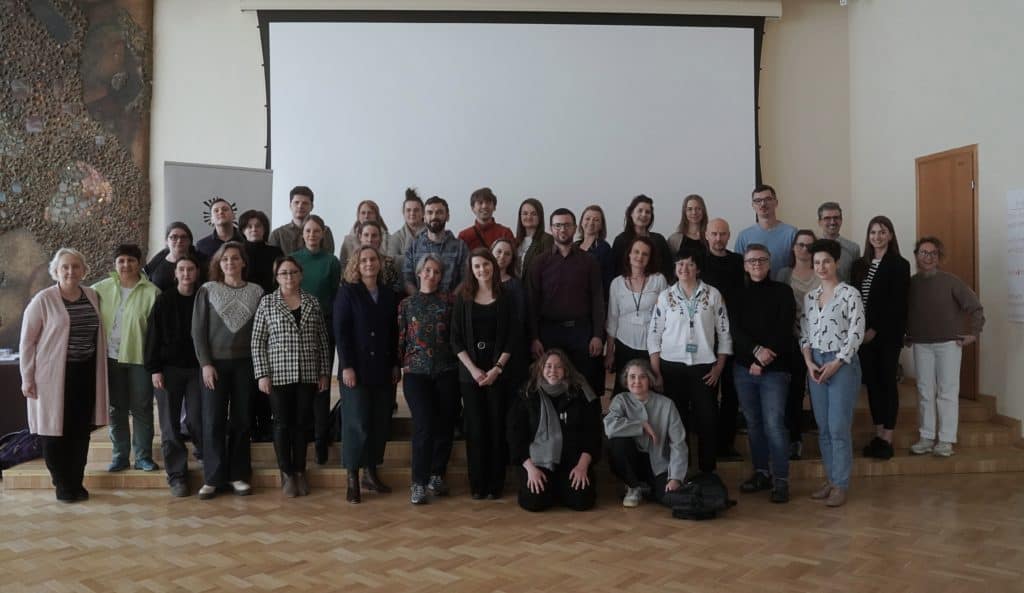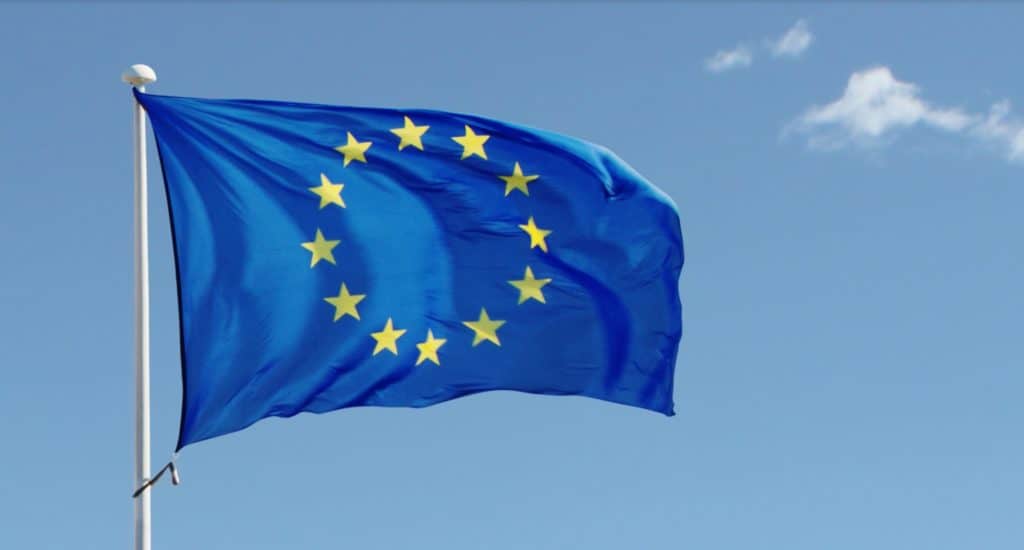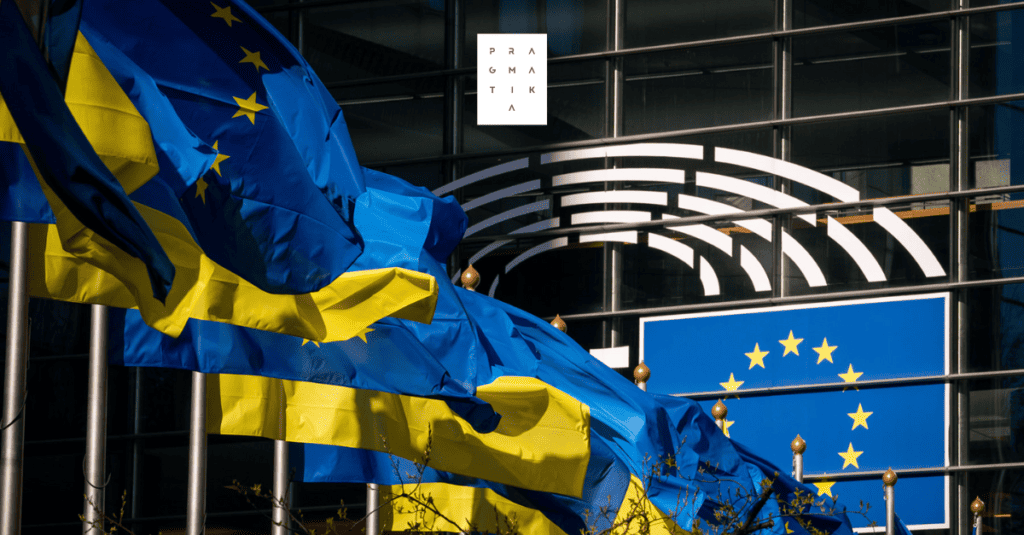Solidarity, dignity, empathy… these are just some of the values guiding the daily work of the organizations participating in the Third Forum for Cooperation and Integration, which took place in November/December 2023 in Warsaw. It was with naming and discussing these values that the next meeting of leaders of organizations from all over Poland, working on behalf of migrants, began. We thank the partners of the event – the Union of Polish Metropolises and NGO Forum Together.
Guided by these values, we aim to create friendly and safe living conditions for all foreigners. For this to happen, our voice must be strong and heard by policy makers. Nothing that affects us can happen without us. That’s why we dedicated another part of the first day of the Forum to advocacy. A workshop to raise our competence was conducted by Monika Matus from Doctors Without Borders.
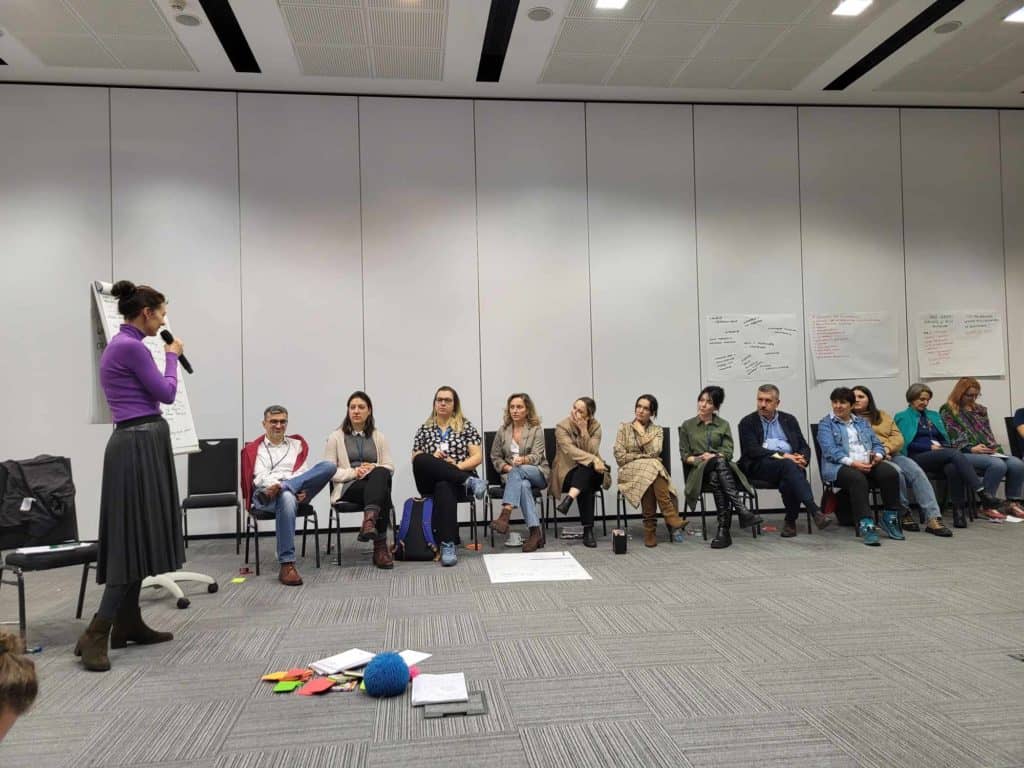
We ended the day with a conversation on migration policy – a key document that is sorely lacking at the national level. What has changed after the elections? What work is going on at the central level, what are we participating in? What are our priorities? What are our demands to politicians? These are the questions we tried to find answers to. The panel on this topic was moderated by Professor Witold Klaus and Dr. Magdalena Nazimek-Rakoczy. Here we encourage you to read the demands to politicians made by the Migration Consortium in November this year: https://konsorcjum.org.pl/postulaty-do-politykow-i-polityczek-apel-organizacji-czlonkowskich-konsorcjum-migracyjnego/.
The next day, Anna Dabrowska moderated the discussion “Local governments and community organizations change the world.” Our guests were:
- Joanna Sosnowska, Team Leader Office of the City of Warsaw, Office of International Cooperation (WM), Head of the Team for Coordination of Activities for Foreigners
- Mateusz Płoskonka, Deputy Director of the Department of Social Policy and Health, Cracow City Hall
- Piotr Choroś, Director of the Lublin City Hall, Social Participation Office
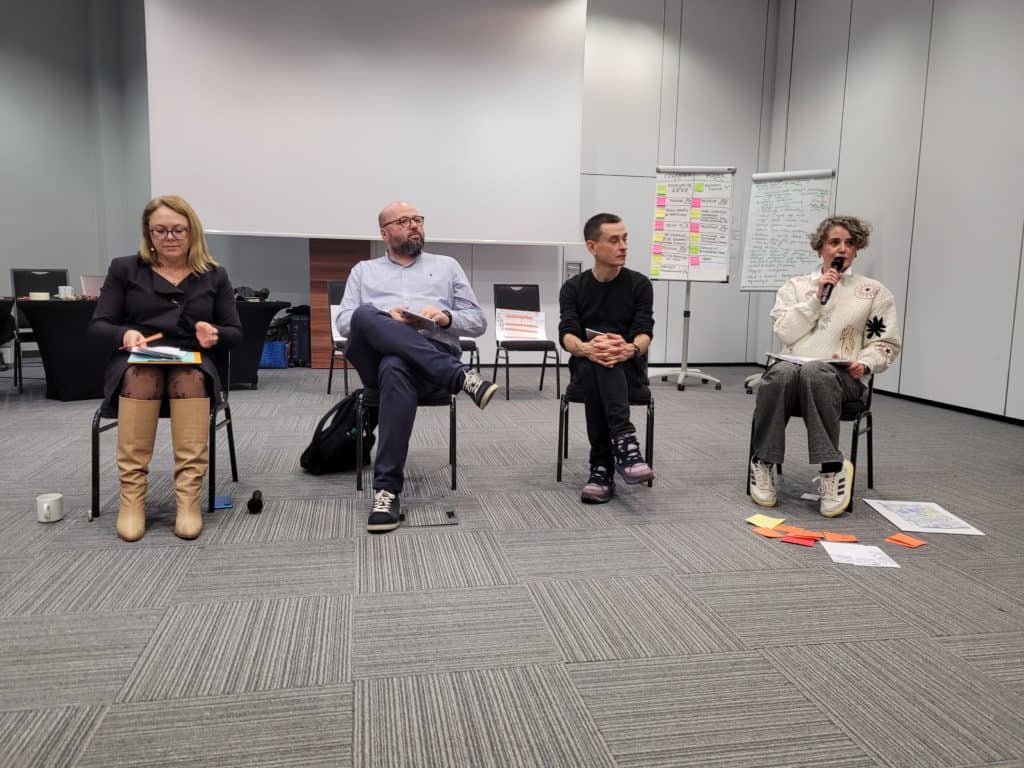
What lessons have local governments learned, especially in the context of the escalation of the war in Ukraine and the related arrival of refugees from Ukraine to Poland? What from these experiences can stay with us for the long term? What is the role of civil society in all this, and do the upcoming local elections have any significance in this context?
Joanna Warchał-Beneschi of the NGO Forum “Razem” talked about how we can create strong advocacy alliances, how to address migration issues before the Europarliamentary elections, and what are the exit strategies of international organizations from Poland.
Magdalena Nazimek-Rakoczy talked about good practices of local networking on the example of Wroclaw. She spoke about the formation of a closed sector group, consisting of 9 organizations, which wants to speak with one voice about challenges such as flawed participatory processes, the lack of a national migration policy, funding difficulties, small research facilities or overlooking the needs of “less numerous” communities.
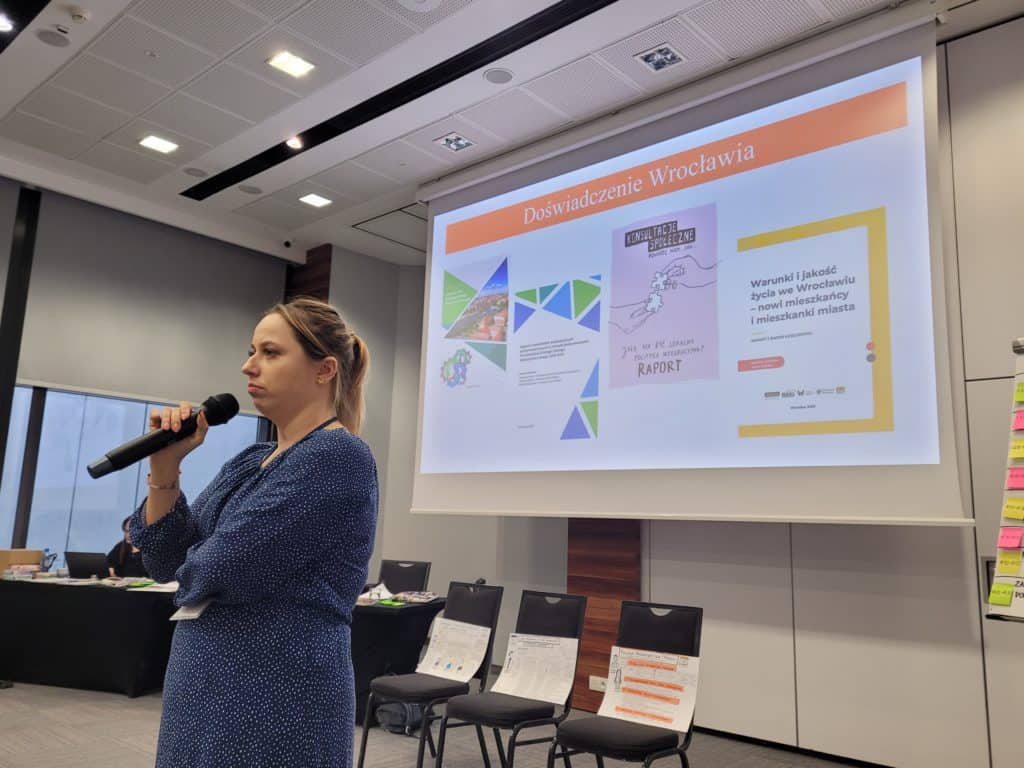
At the very end, Katarzyna Kordziak-Kacprzak introduced us to the world of fundraising. She told us what a well-planned fundraising process for community organizations should look like, how to diversify sources of income and how to implement modern methods and technologies.
The 3rd Forum for Cooperation and Integration, as the name suggests, once again helped to strengthen ties between organizations from all over Poland. Thanks to such meetings, we can consolidate our efforts for change, and the power of our action is even greater. Networking allows us to better adapt to a rapidly changing environment and better respond to new challenges and opportunities. Moreover – working together can minimize the negative effects of failures and increase the chances of success.
Thank you – Aleksandra Fertlińska and Jolanta Steciuk for preparing the whole programme of this meeting. We would like to also thank Kalina Kabat for facilitating the integration parts, listening attentively and recording what went on during these two intense days.
